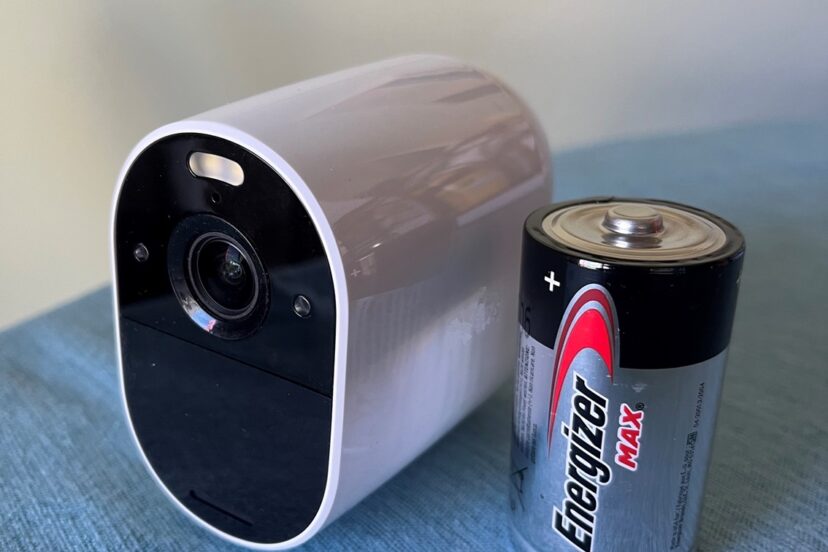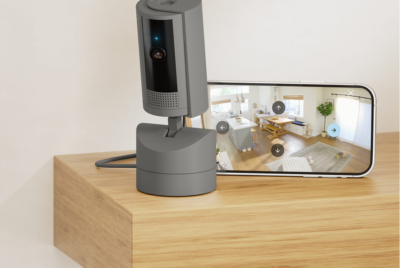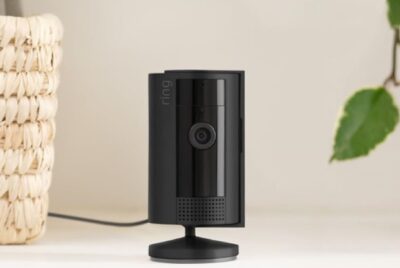Battery Capacity & Cloud Storage Options for Security Cameras
In today’s rapidly advancing technology landscape, it’s essential to know the various choices available for home security cameras. Making well-informed decisions concerning factors such as battery capacity, storage capacity, and the integration of cloud storage is crucial for your home security system. In this article, I’ll guide you through the options available and provide suggestions for a secure and reliable home surveillance system.
Battery Capacity vs. Storage Capacity
Understanding Battery Capacity
Battery capacity is a critical factor when it comes to wireless security cameras. The size and quality of the battery can determine how long your camera can operate without requiring a recharge. Higher capacity batteries can last several months, while smaller ones may need more frequent recharging.
Battery Types
- Lithium-ion (Li-ion) Batteries: These batteries offer a good balance between capacity and size, making them suitable for wireless security cameras.
- Rechargeable vs. Non-Rechargeable: Consider whether you want a camera with rechargeable batteries or those that need regular replacements.
Battery Life
- Longevity: Look for cameras with extended battery life to minimize the frequency of recharging or battery replacement.
- Low-Battery Alerts: Opt for cameras that offer notifications when the battery is running low.
Solar-Powered Options
- Eco-Friendly: Explore solar-powered cameras to reduce your carbon footprint and eliminate the need for frequent battery changes.
Understanding Storage Capacity
Storage capacity refers to the amount of video data your camera can record and store. It’s directly related to the memory or storage card within the camera. It’s essential to have enough storage to retain critical footage without overwriting. Here’s what you need to know:
Onboard vs. Cloud Storage
- Onboard Storage: Some cameras have built-in memory cards, which is suitable for short-term storage. These cameras may overwrite old footage when the storage is full.
- Cloud Storage: Consider cloud storage for long-term storage and easy access to your footage from anywhere.
Capacity Options
- MicroSD Cards: If you prefer onboard storage, choose a camera that supports microSD cards with a capacity suitable for your needs.
- Cloud Plans: Opt for a cloud storage plan that fits your requirements, considering factors like the number of cameras and storage duration.
Choosing the Right Home Security Camera
Wired cameras offer constant power, but they can be limited in terms of placement due to the need for electrical outlets. Wireless cameras, on the other hand, provide flexibility but rely on batteries or solar power.
Benefits of Battery-Powered Cameras
Battery-powered cameras offer the convenience of placement without worrying about wires. They are cost-effective and can be easily relocated when needed.
Cloud Storage for Home Security Cameras
Cloud storage eliminates the need for physical storage devices and offers remote access to your footage. It ensures data safety even if your camera is stolen or damaged. Here are cloud storage options available:
Free vs. Paid Cloud Storage
- Free Plans: Many manufacturers offer limited free cloud storage, but it may not be sufficient for long-term use.
- Paid Plans: Invest in paid cloud storage for more extensive storage and additional features like AI detection and 24/7 support.
Security and Privacy
- Encryption: Ensure the cloud service uses strong encryption to protect your data.
- Privacy Policy: Review the provider’s privacy policy to understand how your data is handled.
Combining Battery and Cloud Storage
To maximize the benefits of both battery-powered cameras and cloud storage, consider a system that offers the option to save videos in the cloud and on a local storage device. This redundancy ensures you have backup footage in case of connectivity issues.
Maximizing Security with AI Features
Many modern security cameras are equipped with artificial intelligence features. These can include facial recognition, motion detection, and alerts for specific events. These features enhance security by filtering out false alarms and providing you with more meaningful information.
Product Examples
To give you a better idea of the options available, here are some examples of home security cameras with varying battery and storage capacities:
Arlo Pro 4
- Battery: Rechargeable Li-ion, long-lasting
- Storage: Cloud and microSD card
- Cloud Plans: Free and paid options available
Ring Stick Up Cam
- Battery: Rechargeable Li-ion, good battery life
- Storage: Cloud storage with subscription plans
Wyze Cam
- Battery: Non-rechargeable, low-cost
- Storage: Supports microSD cards and free cloud storage
Recommendations
Based on the above factors, here are my recommendations:
- If you want a wireless camera with long battery life and flexible storage options, consider the Arlo Pro 4.
- For an affordable option with decent battery life and cloud storage, check out the Ring Stick Up Cam.
- If you’re on a budget and prefer a wired camera, the Wyze Cam is a great choice.
Conclusion
Choosing the right home security camera involves considering battery capacity, storage capacity, and cloud storage options. Each element plays a crucial role in the overall functionality and convenience of your security system. Assess your specific needs, budget, and explore the product options mentioned to make an informed decision.
FAQ’s
1. What is the advantage of a camera with a long battery life?
A longer battery life means less frequent recharging or battery replacement, reducing maintenance and ensuring continuous surveillance.
2. What is the ideal storage capacity for a home security camera?
The ideal storage capacity depends on your usage and how often you want to review footage. 32GB is a good starting point.
3. Do I need cloud storage if I have local storage?
Cloud storage offers redundancy and remote access, making it a valuable addition to local storage.
4. Are AI features necessary for a home security camera?
AI features can enhance security and convenience, but they are not essential for basic surveillance.
5. How do I ensure the privacy of my security camera footage in the cloud?
To protect your privacy, choose a cloud service with robust encryption and carefully review their privacy policy to understand how they handle your data.




